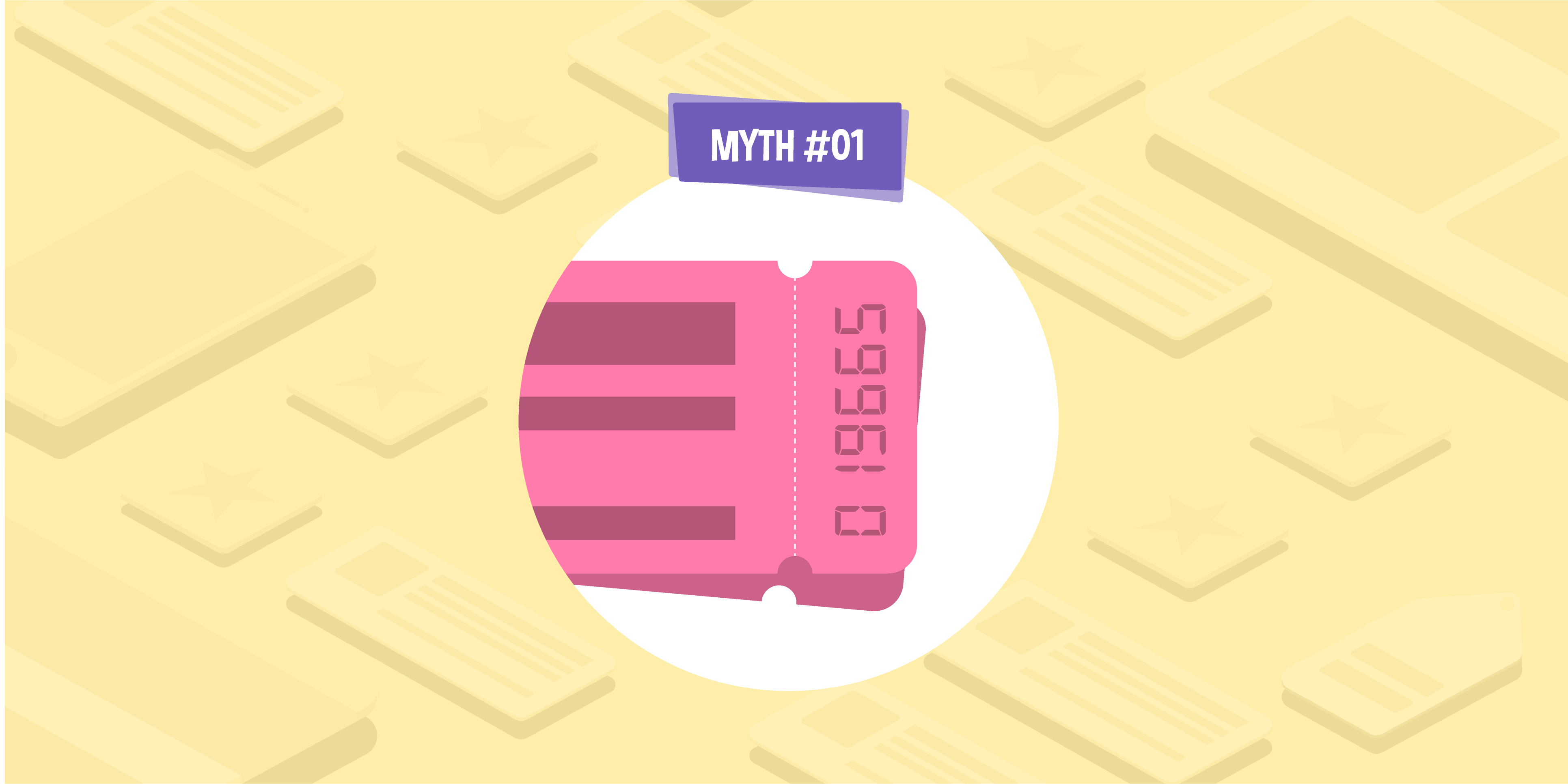
- 13 Mar 2019
- 4 Min read
What are ‘Your Money, Your Life’ pages and how does Google rank them?
- by Emily Park
There’s been a lot of talk about ‘Your Money, Your Life’ (YMYL) pages within the digital marketing industry over the last few months, and with good reason. SEO experts have noticed that Google’s most recent algorithm updates seem to have targeted these types of pages in particular, and the search engine also released a report [PDF] last month, which confirms that it treats these pages differently when deciding how to rank them.
But what are YMYL pages and how could they be affecting your Google rankings? We’re going to explain everything you need to know here.
What are YMYL pages?
According to Google’s Search Quality Guidelines, pages that could potentially impact the future happiness, health, financial stability, or safety of internet users are filed into the ‘Your Money, Your Life’ category.
YMYL pages include, but aren’t limited to:
- Shopping or financial transaction pages
- Financial information pages
- Medical information pages
- Legal information pages
- News articles or official information pages
- Other content relating to serious issues, such as child adoption, car safety, etc.
This means, if your website has pages with content that could affect the direction of someone’s life in one way or another, you need to be putting plenty of work in to ensure all of the information you’re offering is true, accurate, and genuinely helpful. Otherwise, you’ll be far more likely to be penalised by Google, no matter how well-optimised your content is.
How does Google assess and rank YMYL pages?
Google recently confirmed that it has started to prioritise certain ranking factors when dealing with YMYL pages in an effort to fight disinformation. And, the factors they’ve started to give more weight to are those to do with expertise, authoritativeness, and trustworthiness (E-A-T). So, you’ll want to keep these at the forefront of your mind whenever you’re creating YMYL content.
They have also mentioned that they’re going to be increasing these E-A-T signals, so they can provide search engine users with results that comply to the “strictest standards of trustworthiness and safety”. If you would like to know more about what kinds of factors they’re already taking into account, make sure you read our guide to E-A-T ratings and how you can improve yours.
What are the characteristics of high-quality YMYL web pages?
In order for your YMYL pages to rank highly on Google, they need to be of a high quality. And, there are seven core characteristics that the search engine looks for, which will help to show that your more serious content deserves to reach as many people as possible. We’ll outline those here, so you can give your website’s pages the best chance of reaching the top of the SERPs.
1. “Main content” (MC) is of a very high quality
When we talk about the main content on your website, we’re referring to the copy that helps visitors to accomplish whatever they were trying to do by visiting a particular page. According to Google, its team of Search Quality Raters will deem content of a high or the highest quality when it has been created with a high degree of time, effort, expertise, talent, and skill. So, in order to show this, your copy needs to:
- Be factual, accurate, and clearly written
- Be comprehensive and detailed
- Clearly demonstrate that a lot of work and expertise has gone into creating it
- Function properly
In its Search Quality Ratings Guidelines, Google states that high-quality main content is one of the three primary considerations taken into account when rating YMYL Page Quality, so it’s something you definitely need to be paying a lot of attention to.
2. There’s a high level of expertise, authority, and trust (E-A-T)
We’ve already touched on this, and you can learn more by reading our guide to E-A-T ratings. But, because YMYL content is categorised as such if it can have a real-world effect on searchers’ lives, it’s expected that the copy will be written by a trustworthy expert who is only going to offer valuable advice.
As a result, when you’re planning a new piece of content for your website, it’s vital that you always enlist the right person for the job. And, make sure you always add a byline and bio to written content on your site, so people know that it’s come from a reputable source.
3. Your site has a positive reputation
Of course, the main purpose of your website is to market your products or services, as well as build a reputation for your business as a whole. But, Google’s Search Quality Raters are ultimately instructed to measure the reputation of your website based on third-party reviews and other external factors. Essentially, this will mean that the search engine looks into the likes of industry affiliations, partnerships, and societies that you might be associated with.
They’ll also check independent reviews, testimonials, and news of any awards you might’ve won to determine whether your business is a trustworthy source for the information and advice you’re giving out. So, encouraging your customers to leave reviews, applying for industry awards, and asking for any companies you work with to provide you with a testimonial can all work in your favour.
4. There’s helpful supplementary content
According to Google, when you’re writing content, linking to or adding any supplementary content that “can help a page to better achieve its purpose” will help to make it more valuable and, therefore, give it a better chance of ranking highly. For example, when you’re writing a new piece of content, you could:
- Link to related and relevant blog posts
- Embed educational videos
- Link to FAQ sections on your site
- Add functional tools that might help to solve a searcher’s problem
- Include your location details on a page if a reader might decide to visit you in person
Google has highlighted that it expects larger and more established websites to include more supplementary content, while smaller businesses won’t necessarily be held to the same high standards. It’s all relative, and Search Quality Raters will assess your pages based on what they think you can be expected to do.
5. Pages have a functional design
We all know that offering a positive user experience is incredibly important when you want your pages to rank highly on Google’s SERPs. But, it’s even more important that your YMYL pages have a functional design, because people need to be able to find the information they’re looking for quickly and easily.
According to the search engine, a functional page design should accomplish the following:
- Main content should be prominent and immediately visible when a user opens the page
- It should be clear which part of the page is the main content
- It should be obvious which parts of the page (if any) are adverts
- Function should be prioritised over form (although there’s no harm in making your site look nice)
The general consensus is that, as long as you haven’t manipulated the design of your site so users might get distracted by ads or find it difficult to locate the information they’re looking for, you don’t really have anything to worry about. But, it’s worth keeping this point in mind when you’re next looking to redesign.
6. There’s a good amount of website information
Google likes to be sure that it can trust the information and advice you’re offering online, so its Search Quality Raters are asked to look for website information that supports this. Website information is defined as:
- Customer service information
- Contact information
- Information about who is responsible for your website’s content and maintenance
- About Us information that explains who runs your websites and what your goal is
- Privacy/terms of use information that explains how you’ll use any user information collected
Essentially, if you don’t have this kind of information that is going to reassure Google that you can be trusted to publish valuable and reliable information, you can expect your rankings to be quite low.
7. Content is well-maintained and up to date
Of course, you’ll always want to provide people who visit your site with useful and up-to-date information, so you should already be carrying out regular content audits to ensure this case. But, keeping on top of this can also help to make your site seem more trustworthy and authoritative, which, in turn, can boost your rankings.
To ensure your content appears well-maintained and up to date, you will want to take steps to avoid:
- Broken links
- Load errors
- Slow-loading images
- Old and out of date content that is never updated
Google has stated that it will judge categories of sites differently when it comes to their maintenance. For example, news sites will be expected to publish content on a daily basis, while commercial businesses that produce ever-green content will be given more slack. But, it’s still important that you try to stay on top of things so you aren’t misinforming your customers and website users.
Google has become a lot stricter about the ways in which it ranks YMYL pages over the last couple of years — and especially the last few months. So, to give your pages about more serious topics the best possible chance of reaching the top of the SERPs, keep these characteristics in mind and build your content around them.
And, if you’re looking for an SEO agency that could help you to improve your Google rankings, get in touch to discuss your vision today.

